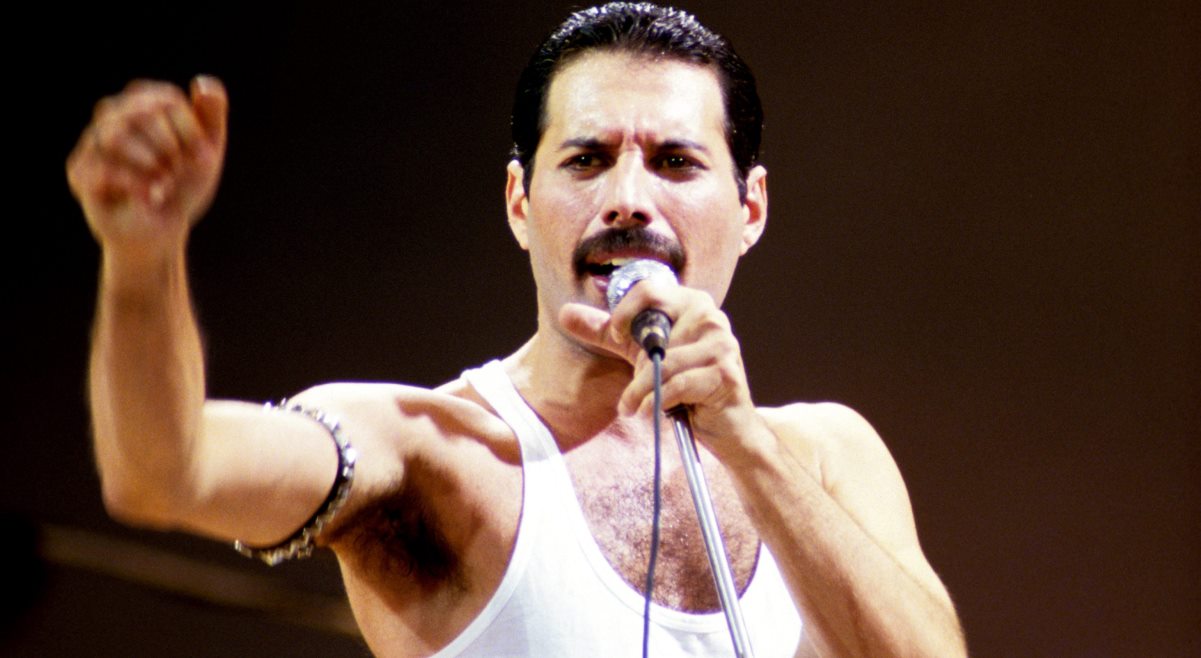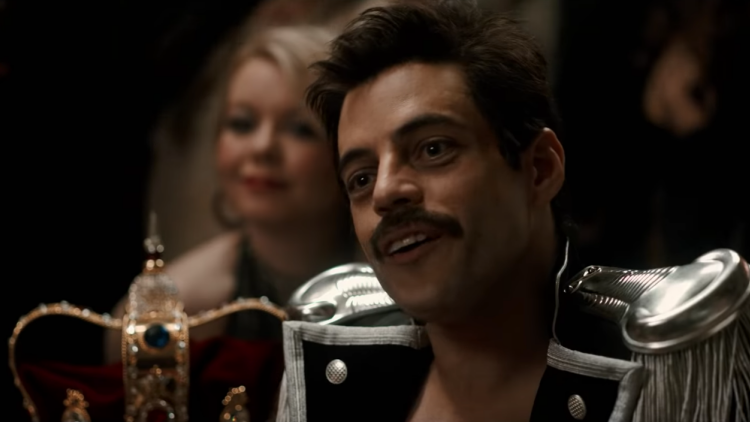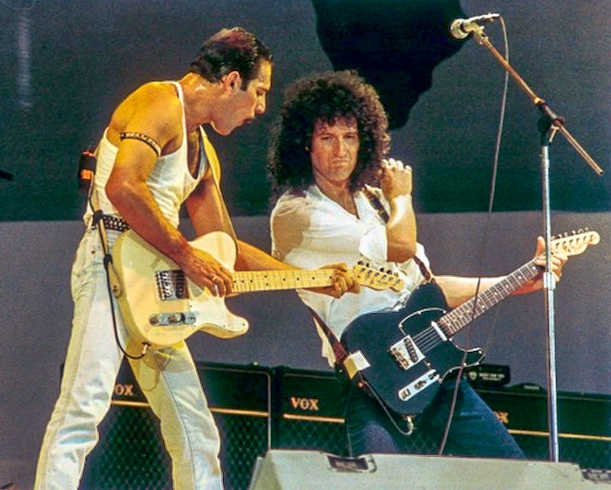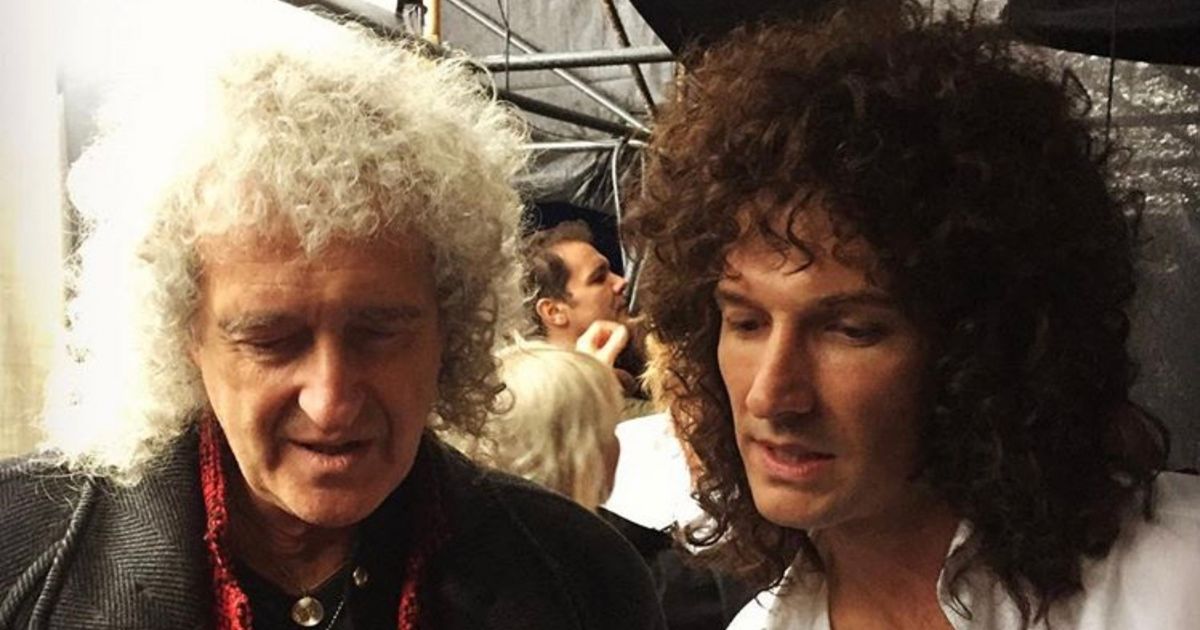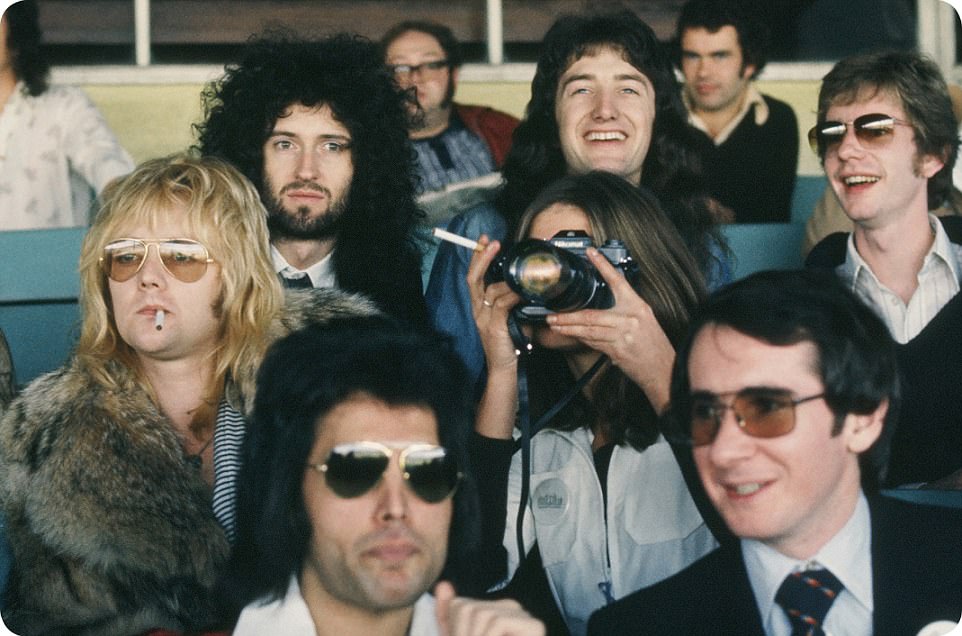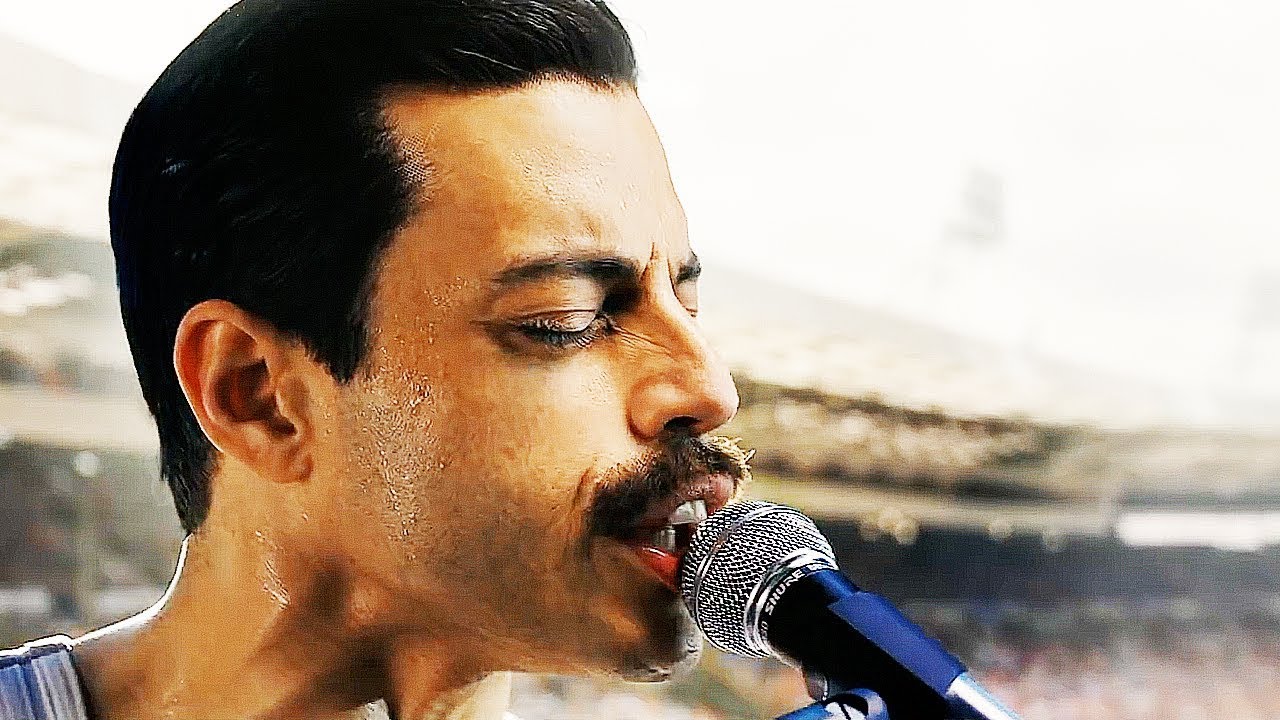
Sometimes, I have a hard time dealing with new documentaries or films about Queen or one of its members. I’m always hungry for more insight into one of my favorite bands, but I’ve also read and seen my fair share of inaccurate “news” and clumsy “documentaries”. Queen, but especially Freddie Mercury, have been subject to media shaming so many times that it’s not even funny. Freddie’s legacy matters to me, just like it does to millions of other people. And when you know that so many people are so eager to spread lies for their own benefit, or want to focus on the so-called “dark” side of his life, it becomes that much more important to protect what this iconic musician stood for. It is with these feelings that I approached this new film, “Bohemian Rhapsody”. And it is with these feelings that I’m writing this opinion piece.
I don’t know how I could best categorize myself, but I am a huge Queen fan. I’ve been a fan for 23 years and I practically perused every book and article, and watched every documentary that has been made available. I’m a die-hard fan, I’m a big fan, I’m a life-long fan… whatever you want to call it. You get the picture. This band matters to me. Ever since I was a 10-year-old kid, I’ve felt a connection. I love the music, I love the courage they all showed when they needed to, and I love how they so cleverly ignored the criticism and carried on with their vision. Freddie’s story, in particular, has always amazed me because his life really was complicated. He did struggle with quite a lot and a hounding press never made it any easier. But Freddie was always a fighter. He was always his own person. He always managed to create and to live life to the fullest. He always managed to spread joy, even when he was diagnosed with a terrible illness. How can you not be inspired by that man?
Bohemian Rhapsody, the movie, was in the works for a long time. I want to say it was first announced 8 years ago, but I’m sure the idea was around for even longer. First it was called the “Freddie film”, then the “Freddie biopic”, then some referred to it as the “Queen biopic” … After many references, the actual title was revealed as such. So, what took them so long? That’s another complicated answer!
I won’t delve too much into how we ended up here, but a little bit of information is needed to understand the film itself. When I first heard of the movie idea, I was nervous for reasons stated at the beginning of this article. Hollywood loves sensationalism. That’s what sells. I wondered, nervously, about what they were going to do to Freddie’s story to draw as big of an audience as possible. Some of that anxiety was unwarranted, some of it wasn’t; but I’ll get to that later. Brian May and Roger Taylor, two living members of the band who are also active with Queen (John Deacon retired from music in 1997), were going to be involved in some capacity. They were determined to make this film. And so, it began…
The Queen camp had to deal with different stakeholders at different phases of the project. Directors who were first associated with the project who then left. Actors who were supposed to play Freddie Mercury but then didn’t. The most popular disagreement was when Sacha Baron Cohen was first announced as Freddie but negotiations fell through after a while. I don’t know if he left or if he was asked to leave, and quite frankly, I don’t care. I’m glad things didn’t work out with him for two reasons: 1) I think Rami Malek did a fantastic job and I can’t now picture anyone else in that role, and 2) Cohen’s vision for this film was completely wrong. He wanted to focus on Freddie’s parties or the “dark” side of his life, whatever that means. But he was too ignorant to understand that that would have reduced Freddie to one thing and one thing only. That’s not fair at all. The version we ended up with does touch upon some of those aspects of his life, but to focus on those for the entire movie, or even for the majority of the movie, would have been a disservice. Mercury was a musician, first and foremost. He was a complex individual. The people who are only interested in his sex life and his parties in the early ‘80s probably never bothered to read beyond what the tabloids have written. Cohen’s a good actor, but he had a terrible attitude about this project. I’m really, really glad his vision for the film was not tolerated.
Before we get into my detailed review, here’s a major disclaimer: there are spoilers in this article! If you haven’t seen the film yet and if you plan to, you have been warned.
Overall, I liked the film. My review is not going to be straightforward because there were parts I loved, and there were parts I didn’t. But in general, I liked the spirit of the film and the message it tried to convey. Since I am such a big fan and fairly knowledgeable about the band, I can write a 100-page essay. But I want to make sure I keep this review as concise as possible. So, I will group the most common comments I’ve seen about the film in certain categories and write down my reactions to those comments. That way, you can follow my train of thought easily.
As Freddie says at the beginning of Another One Bites the Dust: “Let’s go!”
Reminder: There are spoilers in this article.
1. The Timeline
As I’m sure everyone knows by now, the movie ends with Queen’s legendary Live Aid performance in 1985. I will talk about some of the inaccuracies in the film later. For now, let’s focus on the timeline chosen for the film. This topic quickly became an area of criticism with some people suggesting they should have delved into Freddie’s final days to show his battle with AIDS. I disagree with this criticism. I think their idea of ending the film on a high note was absolutely the right idea!
The thing is, Freddie, as noted in the film, refused to be remembered as a victim. Even when he found out he had AIDS, all he wanted to do was carry on as normally as he would until he no longer could. Secondly, there’s already plenty of material about Freddie’s last few years. For example, Peter Freestone, who was Freddie’s personal assistant for almost 12 years, has a great book that gives you a lot of details, including some from his later years. But not much has been said about how the band was formed, how Live Aid came about, how complicated Freddie’s life was, what some of the internal band struggles were, etc. I think those things were far more important in Freddie’s life and show a better picture of who he was. AIDS didn’t define him. He defined him.
By ending the film on a high note, we all got to celebrate his life and his contribution to music, rather than feeling sad or sorry for him. Knowing Freddie from everything I’ve read, he would have hated to be pitied by thousands of movie-goers. He loved life, he was proud to have created all these beautiful songs. Plus, Live Aid was indeed a crucial point for the band. They technically never broke up (an area where the film deviates from real-life) but it is true that Live Aid was the show that got the creative juices flowing once again and allowed each member to embrace Queen more than they had in a long time. What came after the show was a band collaboration called One Vision (first released as a single, then as the opening track to A Kind of Magic), and if you look at the studio footage, you can see just how much fun they were having.
In the end, I think ending the film at Live Aid was a great idea. It would have also worked to end it with the 1986 European tour (Queen’s last with Freddie) but I understand why they went with Live Aid instead.
2. The Cast
They all exceeded my expectations. I think they all did a great job. Especially Rami Malek as Freddie and Gwilym Lee as Brian (watching Gwilym was like watching Brian himself!). No matter what I may have thought of certain scenes, one thing I couldn’t deny was how committed everyone in the cast was.
I watched numerous interviews with the actors too. I love their attitude towards this project. Especially Rami’s. I thought his was a remarkable performance in the sense that he wanted to understand Freddie Mercury as a human being, find a connection and reflect those insights into his performance. In one interview, he said after studying Freddie for longer than a year, he “loved” him and felt a “spiritual connection” with him. As a huge Queen fan, I appreciated hearing that. I know he’s being genuine. And the performance reflected that. If he had done everything the way Freddie did, it would have felt like imitation, not acting. So, don’t expect him to do every single thing the way Freddie would have. Having said that, he did an excellent job with how Freddie moved on and off stage, how his attitude would change when he was being blunt versus when he was rather shy, and he was great in showing Freddie’s vulnerabilities with outstanding acting. Why do you think so many people said they got emotional in certain scenes of the film? Yes, Freddie’s story, in general, has some emotional elements in it, but you need an exceptional actor to get an audience to feel as if they were there.
3. Was Freddie’s Story Sanitized?
This came up a lot when I was reading other people’s comments. I strongly disagree with this criticism. There’s lots to say on this topic, but I will try and keep it short.
First, the film didn’t ignore anything about Freddie’s identity struggles, whether it was about his sexual identity or about being a Parsee Indian living in England. It was all there. So, it’s unfair to say the film ignores these topics. These struggles were a part of Freddie’s life for sure. So, a film about him couldn’t have ignored them. And it didn’t. These were all there.
But then there are the people who say they wanted “more” of certain aspects of Freddie’s life…
I have a hard time understanding just how much focus on Freddie’s drug use or parties in the early ‘80s these people wanted. Should it have been the whole film? Half of the film? What about all the music he made? What about the emotions he had at different points in his life? It’s just so outrageous to me that all these people care about is what Freddie did in his private life. Like I said, of course the film had a responsibility to touch upon these issues. But to focus on these things any more than they did would have been incredibly disrespectful towards a person who was so much more than what these people are making him out to be. All these people who say they wanted the “dark” side of Freddie probably never bothered to read anything about him. He was a gentle person with a clever sense of humor, a loyal friend, and a major creative force in the band.
I’m going to end this part of the article with a quote from Gwilym Lee:
He never wanted to be a poster boy for one specific thing. He didn’t want to be known for being just a gay man, or just an AIDS victim, or just an immigrant. (…) I think it’d be too simplified to just focus on one thing. He’s a complicated man and his whole story is trying to struggle with that complicated identity. And that’s what’s interesting. It’s not straightforward. It’s this rich and complex life that he struggled with throughout his life.
4. Did Brian and Roger want to punish Freddie with this film?
No, of course not! But believe it or not, this popped up in more reviews than one. It’s a more complicated question than it originally looks. I don’t think Brian and Roger would ever try to “punish” their friend. It’s unfair to accuse them in this manner. But I kind of understand why the criticism has appeared in the first place.
Brian and Roger were involved with the production of this film. We all know that. In some way, I’m glad they were because I think this movie was going to get made at some point with or without them, and I’d rather have someone who actually knew Freddie to be there. But one thing they lost by being involved is the claim that they didn’t have anything to do with the script. Yes, they had a screenwriter but you’re not fooling anyone if you think they didn’t have the final say. The fact is, they did get portrayed in the film and they were involved with the production. Freddie, on the other hand, wasn’t there to say “but what about this?”. So, when the film portrays Brian and Roger as these open-minded saviors of the band and Freddie is this party guy who shows up to rehearsals late and even leaves the band, it does naturally annoy fans because not only does it not necessarily reflect the truth, it ignores the fact that all members of Queen engaged in excessive behavior at certain times. It wasn’t just Freddie. But you didn’t really see that in the film. This rather one-sided view naturally made some people question whether Brian and Roger have some kind of resentment towards Freddie that they haven’t gotten over. I don’t think that they do but, again, I understand where the criticism comes from.
My view is that certain scenes were indeed incredibly one-sided. I’ll write more on that in the next section. Freddie didn’t necessarily engage in all the behavior they show in the film. Lots were made up or exaggerated for dramatic effect. Having said that, words like “punish” or “resentment” are taking it too far. Don’t let a few incorrect scenes make you say nasty things about two people who did a lot to keep Freddie’s legacy alive. If Brian May and Roger Taylor really wanted to “punish” Freddie, they would have instead made the film Sacha Baron Cohen wanted.
Let’s all try to remember that Brian and Roger, even if you don’t always like the creative directions they take, did a lot for their friend and bandmate. They were the ones who respected his wish and didn’t tell anyone about his AIDS diagnosis. They lied to the press constantly without so much as a complaint to protect their friend. They composed music with him until the very end, all respecting his wish to carry on with business as usual. That’s probably one of the few things that kept Freddie going until he no longer could. They were all gutted when he died. After his death, they appeared on numerous TV shows to set the record straight about him and correct a lying press who was eager to spread any rumor they wished. They promoted various Queen documentaries and live releases to keep the legacy alive. They organized a musical that started in London that honored Freddie even though the story had nothing to do with Queen. And it’s not just those two… Freddie’s sister e-mailed Rami to say nice things about him and the film. There are also photos of her on IMDB attending events to promote the film. Peter Freestone, who was with him until the end, was involved with the film and answered questions about Freddie for a more accurate portrayal. These people are not there to punish anyone. We may not like some scenes here and there. I certainly didn’t like everything in the film! But if you think they would do anything to intentionally hurt their friend or settle some kind of score, you’re wrong.
5. Freddie’s Portrayal in Certain Scenes
This is a big one. This is the area where the phrase “artistic liberties” appears quite a lot. I understood, even liked, some of these diversions. But then there were others that I found incredibly disappointing. Let me explain…
First of all, I don’t have a problem with the producers having to take artistic liberties with Freddie’s story. That was bound to happen. The way I see it, for someone to resort to these “liberties”, there are a few questions they need to ask themselves. Is this scene absolutely necessary to the overall flow of the film? Is there anyone whom we can consult about what exactly happened? Do we absolutely have to make a change to cut down time? I think an artistic liberty should be the last resort in these cases, but depending on the situation, you’re going to need them. I can think of two good examples here. One is the scene where Freddie came out to Mary as bi-sexual. As Lucy Boynton – who played Mary Austin –said, nobody was in the room when that happened except for Mary and Freddie. But Mary wasn’t involved with the film. And the story is crucial to understand Freddie’s identity struggle. It’s one area they had to create a plausible dialogue based on what they knew. Another one is how Freddie met Brian and Roger. Obviously, the way they show in the movie is not accurate. Freddie already knew Brian and Roger through Tim Staffell, who was his classmate at Ealing Art College. But when you have to cram more than a decade into two hours, this scene had to be altered. Trust me, as a huge Queen fan, I would have gladly watched a 10-hour film! But I understand the decision to make some changes here. Freddie had to meet those two at some point in the film but it also had to be short and sweet. I thought this was another good example of artistic liberty.
That said, not every artistic liberty was needed. Some actually painted a horribly inaccurate picture of Freddie. I’ll say this again; I did like the film overall. But I will never understand why they felt the need to do certain scenes in the manner that they did. Looking at the criteria I laid out in the previous paragraph, these scenes were not really crucial to the story, they did not have to be altered for time, and there was plenty of documentation to prove otherwise. With some different choices, this movie would have been “great” instead of “good”. Let’s set the record straight on some of these…
What bothered me most was this idea that Freddie was the only member in Queen who engaged in excessive behavior. This simply isn’t true. To mention Freddie’s activities during a certain era and to completely ignore everybody else’s paints a biased picture. We all know May and Taylor had their fair share of struggles with the rock-star lifestyle. Maybe not to the extent that Freddie did, but to pretend Freddie was the only one hurts the credibility of the film. I’ve got nothing against May and Taylor; this isn’t about their behavior either. All I’m saying is why paint this biased picture when you know you engaged in some of that too? It negates the role fame and fortune played in all of their lives.
Furthermore, Freddie wasn’t the only person in Queen to release a solo album. Hell, by the time Freddie’s solo album (Mr. Bad Guy) was released in 1985, Roger Taylor had already released two! Portraying Freddie as someone who was seduced by money to release a solo album just isn’t accurate. Yes, the advance he received for the solo album was higher than what Queen had received for their studio album around that time; but that doesn’t prove he did the album for money. The guys had strong creative differences exacerbated by egos. The fact is, Freddie wasn’t the only one to do a solo album or a project outside of Queen. Saying nothing about Roger’s solo efforts or Brian’s Star Fleet Project felt disingenuous.
There’s also this idea that Queen broke up because of Freddie. You couldn’t explain this inaccuracy with “artistic liberties” even if you tried. If they really wanted to build the tension before the Live Aid scene, there were so many other ways. The truth itself would have sufficed! But Freddie never left Queen. The band never broke up. What exactly did they gain by portraying Freddie as the guy who leaves the band for his solo career? I will never understand. But if you’re reading this, remember that this never happened. As recently as last year, Brian was quoted in interviews as saying they all “left the band at some point”. So, at some point, Freddie might have uttered words that could be construed as leaving. That is possible. But even May admits they all “left” the band in this manner! It doesn’t mean they technically broke up. It just reflects how everyone in the band felt frustrated at some point. I wish they’d chosen a different route rather than pinning every tension in the band on Freddie. And then there was that scene where Freddie begs to come back… That was just excruciating to watch!
There’s also the scene with manager John Reid in the car where Freddie fires him. Totally inaccurate for many reasons. Reid wasn’t working with the band in the ‘80s, Freddie never had the authority to fire a band manager by himself, and Reid and Mercury actually had a good relationship when they worked together. Again, I will never understand why that scene was necessary but here we are.
There’s a few more but I’ll leave it at that. You get the idea. I think some liberties were wisely chosen. But the second half of the film had some scenes that did not sit well with me. It felt too one-sided at times. Even the “Another One Bites the Dust” scene where they all love Deacon’s riff… It’s well documented that Brian and Roger did not like that song when it was first written. Freddie was the one who believed in it. But even on this minute detail, Brian and Roger couldn’t be shown as the ones saying “no”. I love them so much, but perhaps they shouldn’t get too defensive when people say certain scenes feel one-sided.
Conclusion
Even though I have some strong disagreements with certain scenes, I overall liked the film. The reason why is because I thought that they had the right idea by focusing on Freddie as a complex human being and a brilliant musician, and covering multiple aspects of his life rather than just one. I liked the cast a lot and thought everyone, especially Malek, did a great job. The interviews they’ve been doing lately show just how much they care about Queen. I think the script was great at times too, and I really love that they chose to end the film on a high note. That’s the way to celebrate someone’s life! Certain things should not have been pinned entirely on Freddie and those things will always leave me with mixed feelings. But if this film inspired people who weren’t fans before to do more research on Queen and discover this amazing band and their music, then it has done its job.
Rest in Peace, Freddie! You have always been a legend to me.
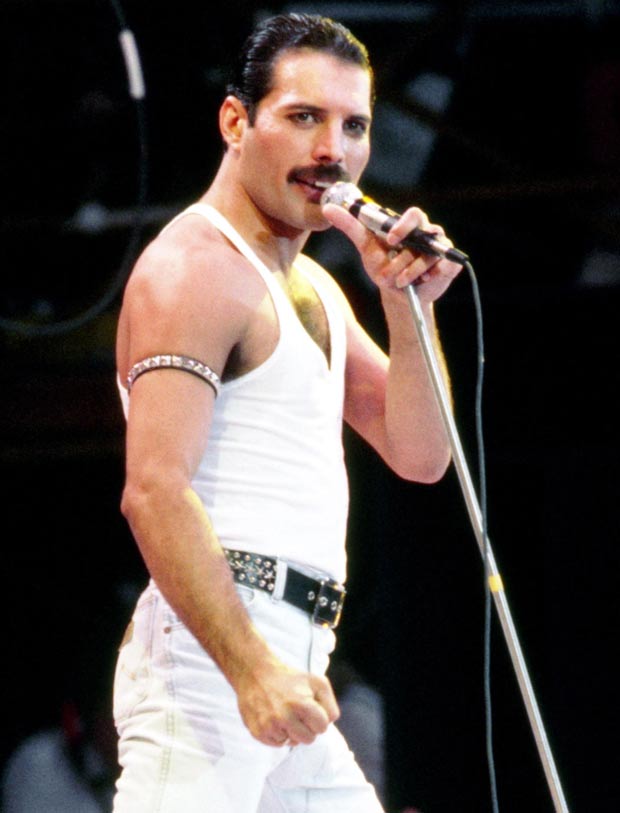
Sources & Additional Reading:
- Queen – Days of Our Lives, DVD (2011)
- Mr. Bad Guy – Album Details (Queenpedia)
- Gwilym Lee, Joe Mazzello & Allen Leech Talk “Bohemian Rhapsody”
- Brian May: “Queen Were Breaking Apart The Whole Time!” (Mojo Music, 2017)
- Freddie Mercury’s pal Tim Staffell says ‘Bohemian Rhapsody’ was ‘the right way to do it’

